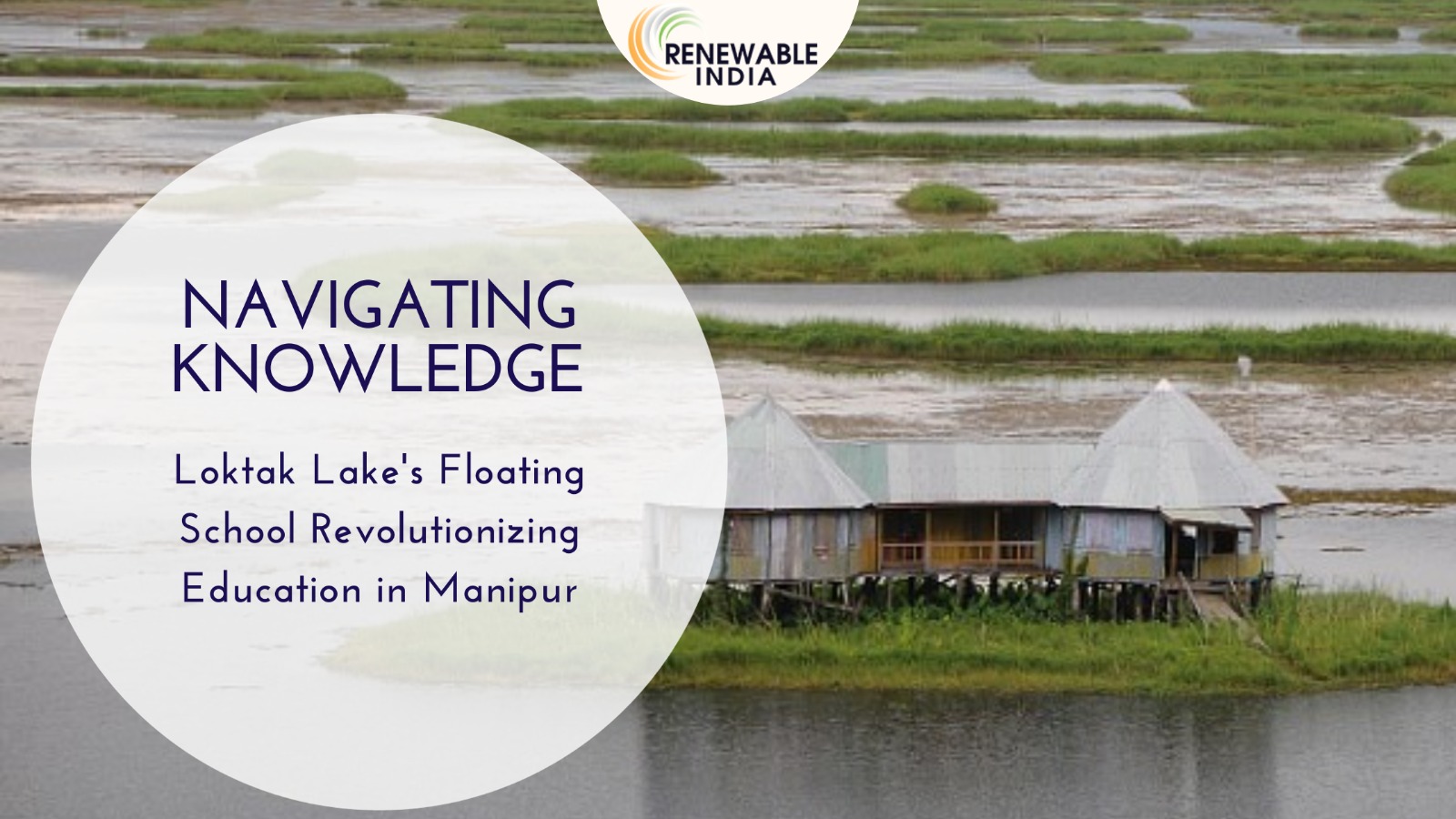
In the heart of Manipur, Loktak Lake is home to a remarkable institution known as the Loktak Floating Elementary School. This school is perched on floating vegetation called Phumdi and is the only one of its kind in India. The school caters to the local communities around Loktak Lake, offering a unique learning experience for 25 students at a time.
The Loktak Floating Elementary School, located on the constantly fluctuating Phumdi, must adjust to rising and falling water levels. Since the school moves around, students must travel there by means of customary wooden boats. Even though it might seem strange, teachers and students deal with this on a daily basis.
With just two teachers teaching 25 students at a time, the floating school demonstrates the flexibility and resiliency of both teachers and students. For the children in the community, the school offers an essential educational platform, despite the logistical challenges presented by the changing environment. Nestled in the peaceful surroundings of Loktak Lake, the floating school accommodates a number of students who not only study there but also reside near the institute.
The local communities face more than just educational challenges. The communities have adopted eco-friendly practices in order to address the delicate ecological balance. Houses are equipped with solar panels to collect sunlight for energy purposes, and rainwater collection systems guarantee a steady supply of water. Despite the erratic levels of lakes, these initiatives provide a dependable source of water and energy while also safeguarding the environment.
1. Environmental Impact: Embracing renewable options, such as solar panels, contributes positively to the environment by reducing dependence on non-renewable energy sources. This helps decrease the overall carbon footprint and mitigates the impact of traditional energy production on ecosystems.
2. Cost Savings: The use of solar panels translates into lower electricity costs for the community. By harnessing energy from the sun, residents can significantly cut down on their energy expenses, making sustainable practices economically advantageous for individuals and the community as a whole.
3. Sustainable Water Supply: Rainwater harvesting is a crucial practice, especially in an environment like Loktak Lake where water levels fluctuate. This method ensures a consistent and sustainable water supply for the community. It helps alleviate water scarcity concerns, providing a reliable source of water even during varying lake levels.
4. Resilience to Climate Variability: Both solar panels and rainwater harvesting contribute to the community’s resilience in the face of climate variability. As weather patterns change, these renewable practices offer a stable and adaptable approach to energy and water needs, safeguarding the community against environmental uncertainties.
Beyond the floating school, Loktak Lake is home to the Keibul Lamjao National Park, India’s first floating park. With more than 100 different species of birds and 230 different kinds of aquatic plants, this park is a haven for nature lovers. The park, also known as “Birds Paradise,” enhances the area’s natural beauty.
The Floating Elementary School at Loktak Lake is a singular representation of learning and flexibility. A picture of a peaceful coexistence with nature is painted by the community’s adoption of eco-friendly practices, the use of traditional boats, and the floating school’s resilience to fluctuating water levels. Lessons learned in Loktak Lake’s exceptional school and surrounding communities go beyond the classroom, promoting a sustainable way of life for future generations.
Leave a Reply